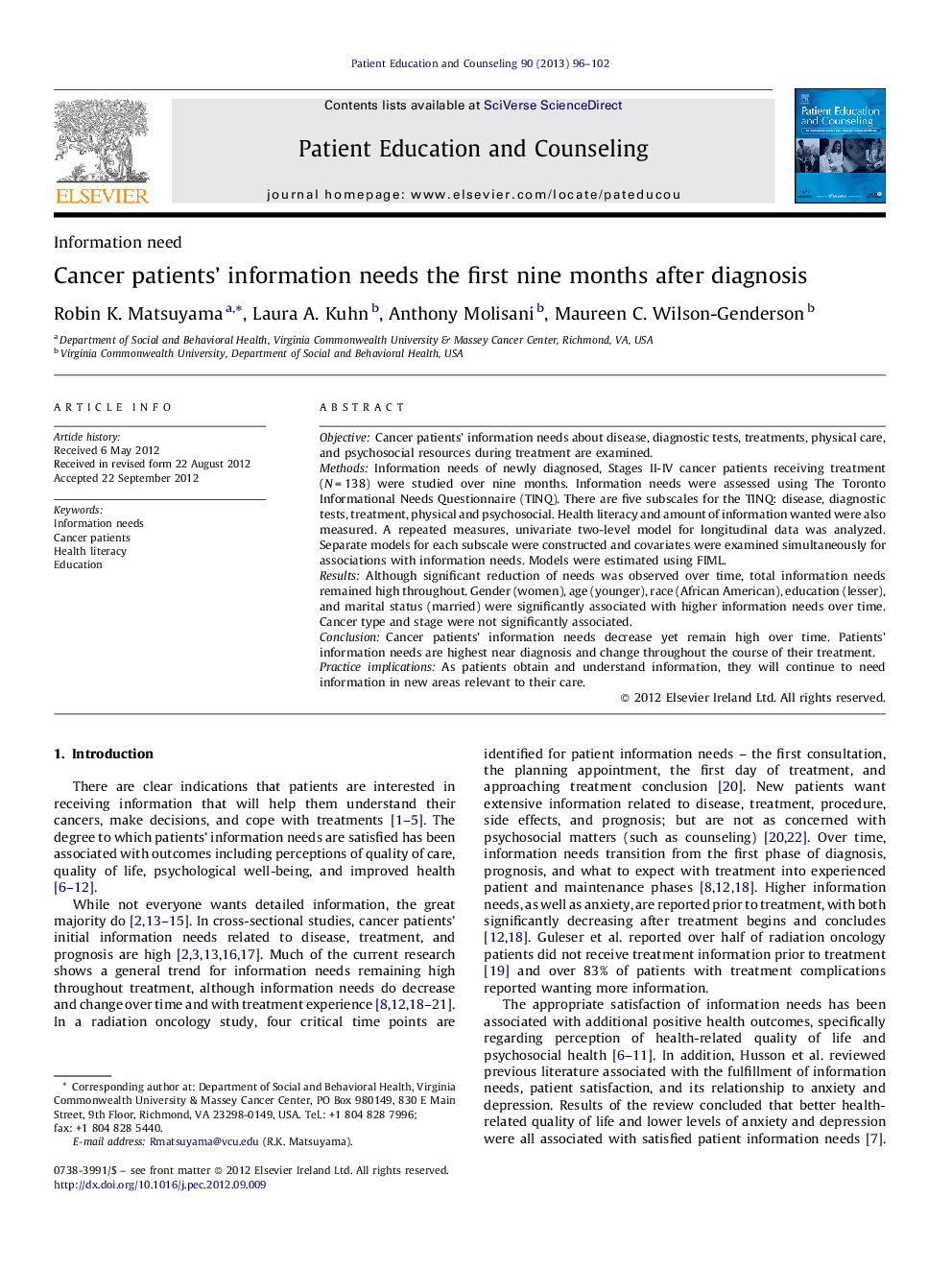| Article ID | Journal | Published Year | Pages | File Type |
|---|---|---|---|---|
| 3814184 | Patient Education and Counseling | 2013 | 7 Pages |
ObjectiveCancer patients’ information needs about disease, diagnostic tests, treatments, physical care, and psychosocial resources during treatment are examined.MethodsInformation needs of newly diagnosed, Stages II-IV cancer patients receiving treatment (N = 138) were studied over nine months. Information needs were assessed using The Toronto Informational Needs Questionnaire (TINQ). There are five subscales for the TINQ: disease, diagnostic tests, treatment, physical and psychosocial. Health literacy and amount of information wanted were also measured. A repeated measures, univariate two-level model for longitudinal data was analyzed. Separate models for each subscale were constructed and covariates were examined simultaneously for associations with information needs. Models were estimated using FIML.ResultsAlthough significant reduction of needs was observed over time, total information needs remained high throughout. Gender (women), age (younger), race (African American), education (lesser), and marital status (married) were significantly associated with higher information needs over time. Cancer type and stage were not significantly associated.ConclusionCancer patients’ information needs decrease yet remain high over time. Patients’ information needs are highest near diagnosis and change throughout the course of their treatment.Practice implicationsAs patients obtain and understand information, they will continue to need information in new areas relevant to their care.
